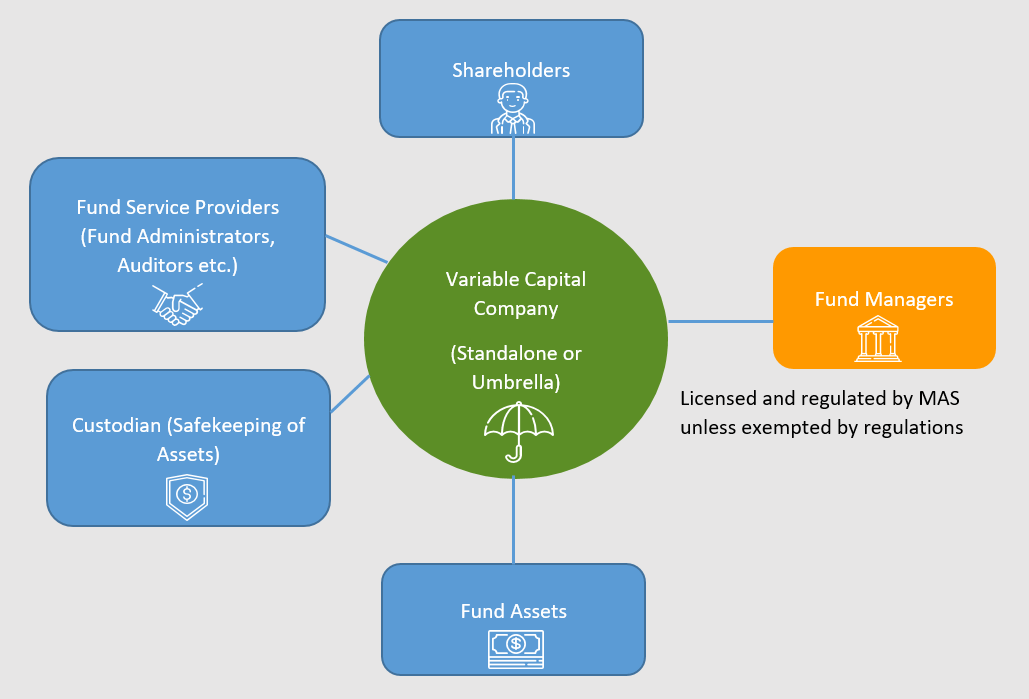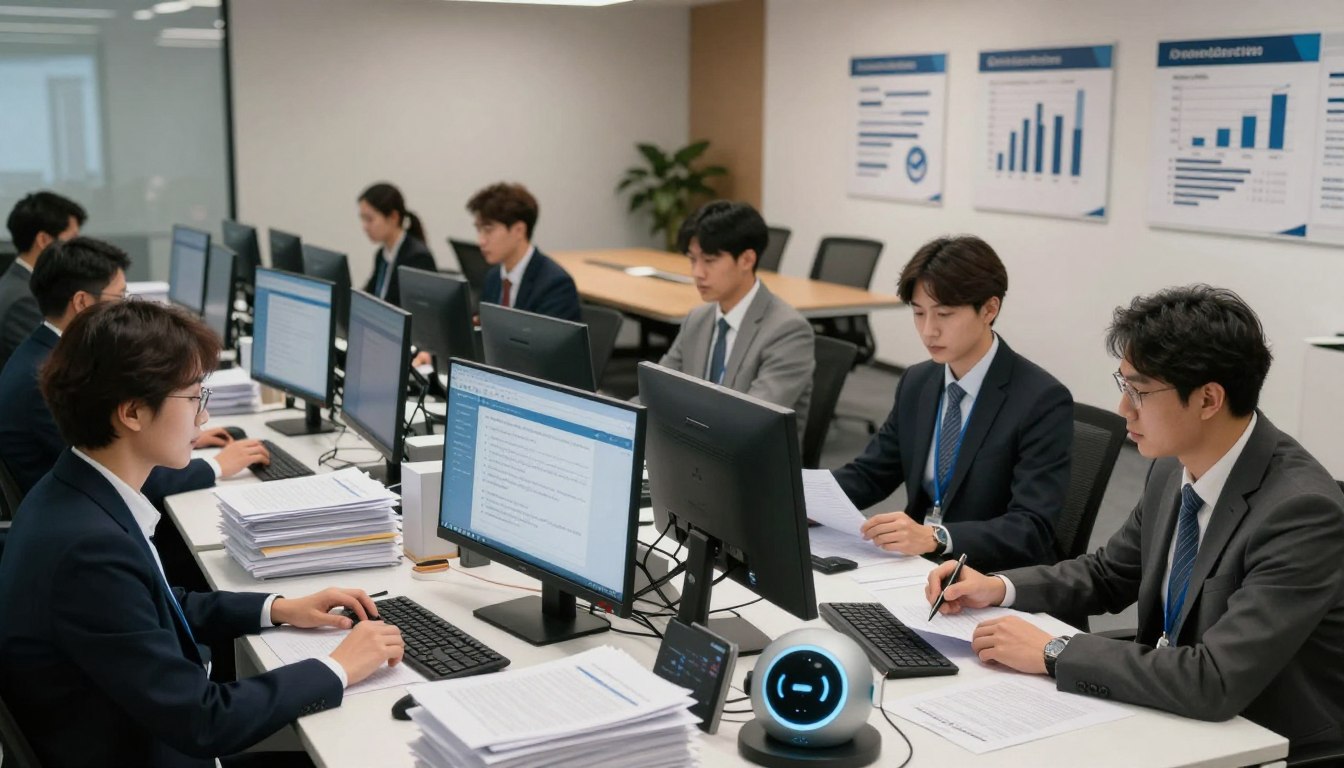by jiawen
Share
Share
Singapore Variable Capital Company (VCC) Structure

Based on the latest asset management survey of MAS, more than 400 VCCs have been set up since the introduction of the framework early in the year 2020. These VCCs are setting up to manage either a single standalone fund or an umbrella fund with multiple sub-funds. The implementation of tax benefits for Singapore fund managers have made offshore jurisdictions less appealing. This will result in an increasing inflows of offshore funds from tax havens like Cayman Islands and Bahamas to Singapore. To further encourage the adoption of VCCs, MAS has implemented a VCC Grant Scheme that provides a grant of up to S$150,000 for each application. Overall, with the increasing number of VCC structures, we can expect the asset under management (AUM) of Singapore to rise even higher than the 17% growth in 2020.
On the other hand, there is a rising trend of setting up single-family offices (SFOs) in Singapore to manage the assets of families. As highlighted by the chief executive of Gordian Capital, Mark Voumard during an interview session with Asian Investors, the MAS is looking to revise its VCC fund structure to expand the use of VCC and allow a wider pool of fund managers including SFOs to setup their own VCC structures. If this is to be implemented in the near future, the VCC structure will definitely help to strengthen Singapore’s competitiveness as a global financial hub.
Conclusion
In the meantime, unless it is qualified for an exemption, all VCCs in Singapore have to be managed by a Capital Market Services (CMS) licence holder or a licenced fund management company (LFMCs). Global fund management companies such as Fullerton Fund Management and UOB Venture Management have expanded their footprints in Singapore through the adoption of VCC framework. If you’re considering to set up a fund management company to manage the VCCs, feel free to reach out to us to find out more on the licensing requirements and the application process.
How We Can Help
Alder offers integrated solutions for clients who wish to set up a fund management company in Singapore which include:
- Offer Professional Advice on the Specific Licence Requirements
- Assist with the CMS Licence Application
- Assist with the Registration as an LFMC
- Review the Submission Documents (Form 1A, Form 3A, Form 11, Form 22A whichever applicable)
- Liaise with MAS on Licence Application-related matters
- Provide On-going Compliance Support Post-Licence Approval
Reference Materials
Joe, M. (2021). ‘Singapore eyes VCC changes to reel in more family offices’, Asian Investor, 2 May. Available at: https://www.asianinvestor.net/article/singapore-eyes-vcc-changes-to-reel-in-more-family-offices/469259
Monetary Authority of Singapore (2021). ‘2020 Singapore Asset Management Survey’. Available at: https://www.mas.gov.sg/-/media/MAS-Media-Library/publications/singapore-asset-management-survey/Singapore-Asset-Management-Survey-2020.pdf
Explore SFO, MAS Licensed, CMS License requirements for 13O, 13U, and AML/CFT policy in Singapore.
Outsource your insurance broker's compliance needs to Alder - experts in MAS filings, AML/CFT, and Outsourced Compliance.
Venezuela-linked cases can trigger higher sanctions and AML/CFT risk. Alder supports Singapore firms with customer screening and outsourced compliance for peace of mind.
Compliance should not slow a fund down. We support VCFMs with right-sized, cost-efficient compliance that scales as you grow, so you can focus on investing while regulatory expectations are met.






